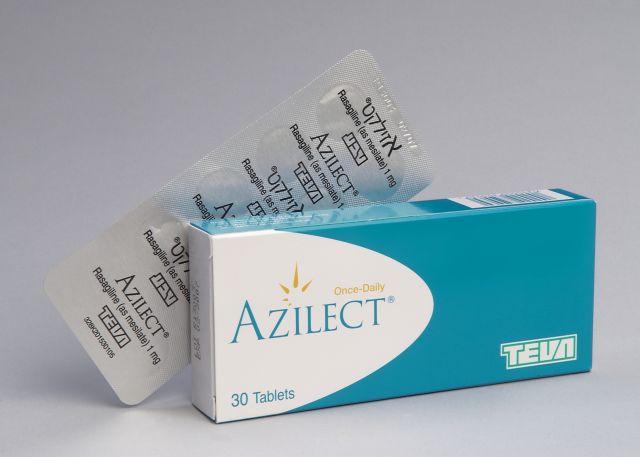Teva's Azilact drug, the result of a joint development with the Technion, relieves Parkinson's patients

The results of the ADAGIO trial (see details below), published this week in the online edition of The New England Journal of Medicine, showed that the treatment with AZILECT (rasagiline) at a dose of 1 mg/day significantly improved Parkinson's patients who received it from the beginning The study for 18 months (the early treatment group) compared to patients who started the same treatment exactly nine months later (the delayed treatment group).1 This finding is consistent with previous findings that indicated a possible effect of AZILECT (rasagiline) at a dose of 1 mg/day on the course of Parkinson's disease, this is beyond the long-known symptomatic benefit. AZILECT is the first treatment for Parkinson's disease that successfully passed a prospective study with a delayed onset, the structure of the trial was specifically designed to test the possibility of an effect on the course of the disease. Azilact is an Israeli medicine, the result of Blue and White development by the Technion and Teva.
Prof. Charles Warren Ulnau, from the Department of Neurology at the Mount Sinai Medical Hospital in New York and co-principal investigator in the ADAGIO study: "There is a need for a treatment that slows down or stops the progression of Parkinson's disease, the current treatments do not address this and do not prevent the development of disability among those suffering from the disease . The results of the ADAGIO study support the possibility that early treatment with AZILECT (rasagiline) at a dose of 1 mg/day may slow the development of disability."
Prof. Nir Giladi, Director of the Department of Neurology and the Movement Disorders Unit at the Sourasky Tel Aviv Medical Center: "This is a very important study, perhaps the largest of its kind ever, that tries to test the effect of a drug on the rate of progression of Parkinson's disease. The results are also groundbreaking as they indicate that the drug has a significant effect on the development of the symptoms of the disease. Based on the results, it can be said that taking the drug shortly after the onset of motor symptoms is better than delaying the start of treatment, and taking the drug early probably leads to a moderation in the rate of disease development. I have no doubt that the results of this groundbreaking research will mean that most Parkinson's patients in the world will receive this drug already in the early stages of the disease. Precisely in Israel, the place of the invention of the drug and its full development, the drug is given today only in some of the health funds. In light of this, 2 classes have been created among Parkinson's patients in Israel: those who receive the medicine as part of the coffers' basket and those who pay huge sums for the medicine every month (500-700 NIS). This situation is socially and ethically intolerable. The injustice caused today to the Parkinson's patient community in Israel must be corrected by introducing the drug into the medication basket for all Parkinson's patients in Israel this year."
Prof. Eldad Melamed, Chairman of the Chair for Parkinson's Disease Research at Tel Aviv University: "The study showed that patients who started early treatment with Azilact 1 mg were better than patients to whom the drug was added later. It can be concluded from this that an earlier start of Azilact at a dose of 1 mg (the dose marketed in Israel and around the world) benefits Parkinson's patients over time, and it is possible that the mechanism of action is by changing the course of the disease for the better."
About ADAGIO
ADAGIO (Attenuation of Disease progression with AZILECT GIVEN Once daily) ADAGIO is a randomized, multicenter, double-blind, placebo-controlled, parallel-group clinical trial that prospectively examines the potential of rasagiline to affect the course of the disease among 1,176 early Parkinson's patients which are not treated. As part of the experiment, which was carried out in 129 medical centers in 14 countries, the patients were randomly divided into 4 groups, with some receiving early treatment (72 weeks of rasagiline treatment at a dose of 1 or 2 mg once a day), and some receiving late treatment (First 36 weeks placebo administration and additional 36 weeks rasagiline treatment at a dose of 1 or 2 mg once a day).

One response
I would be very grateful if you could reply to my email:
Does azilact have a feature
after the body adapts to the drug
Hasilact stops working??
It is very important for me to know